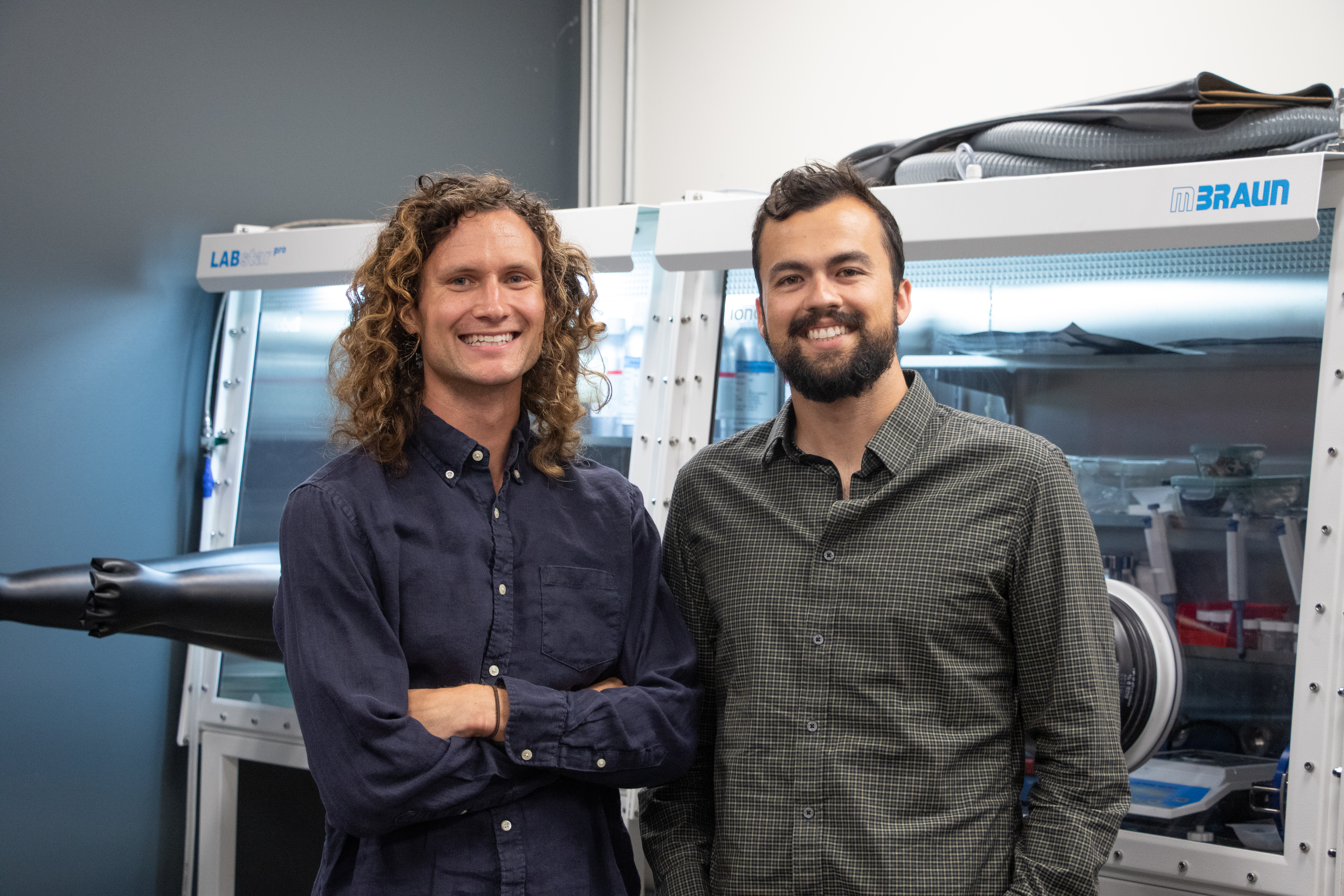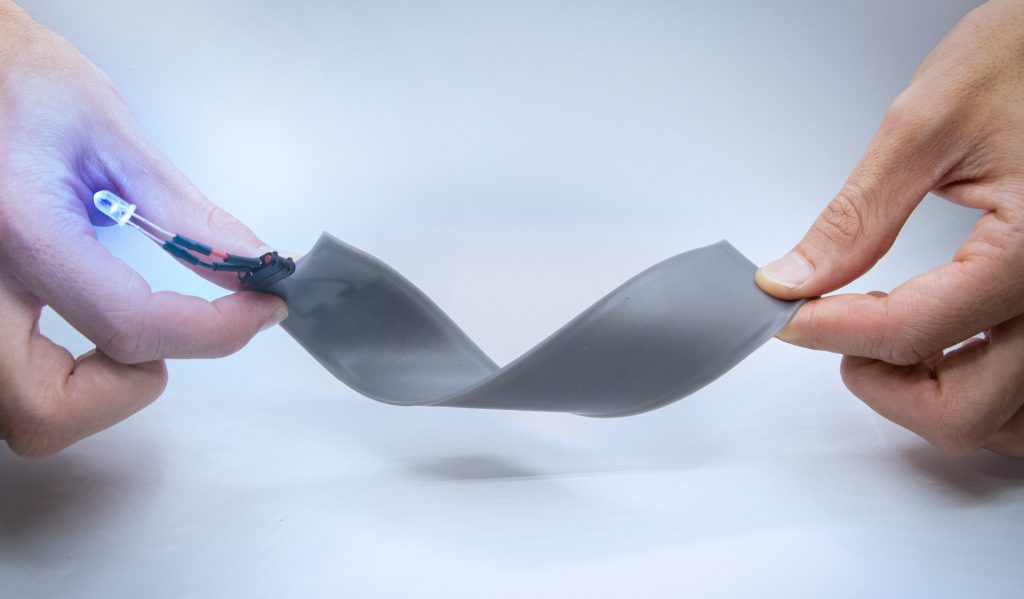Battery technology has made significant strides in recent years, but there’s one place they haven’t changed much — they’re still as stiff as a board.
The era of inflexible portable power may be coming to an end, though, if Anthro Energy can bring its bendy batteries to market. It’s getting some help with that courtesy of an oversubscribed $7.2 million seed round, which the company is announcing today, TechCrunch exclusively learned.
The round was led by Union Square Ventures and Energy Revolution Ventures with participation from Voyager Ventures, Emerson Collective, Nor’easter Ventures, Ultratech Capital Partners and the Stanford President’s Venture Fund.
Anthro was founded by chemical engineers David Mackanic and Joe Papp, who saw an opening for a flexible polymer that could not only give batteries new properties but also offer a quicker way to market than the frequently cited automotive route.
“Batteries are faced with this kind of really severe innovator’s dilemma, where to get into something like an auto, it takes a ton of validation, a ton of technology development and a ton of time,” Mackanic said. “And so I realized if I want to make a difference in the battery space, I’ve got to think differently about the problems I’m solving, I’ve got to think differently about how we’re bringing this to market.”
So rather than begin by chasing after automotive contracts — which have a history of sinking early-stage companies — Anthro is looking to supply batteries for wearable electronics makers. The company’s early demos have swapped rubber watch straps for their batteries, but they’re more likely to be used to power wearable medical devices that already use flexible circuitry.

Automotive batteries could follow, of course. That market is simply too large to ignore, and Mackanic thinks that Anthro’s electrolyte could allow automakers to use power sources that conform to the shape of the vehicle and its chassis instead of designing the vehicle around the battery pack, which is what happens today. Plus, the company’s novel electrolyte is safer because it prevents short circuits and doesn’t catch fire easily.
Anthro’s cells build on work that emerged from Mackanic’s doctoral dissertation at Stanford, where he created the basic recipe for a flexible, rubber-like polymer that can act as an electrolyte in a lithium-ion battery.
Flexible batteries have faced a number of challenges, but the electrolyte has been particularly hard to develop. Today, most rigid batteries use liquid electrolytes to help shuttle ions between the cathode and anode. Bending a rigid battery almost always causes the cell to short-circuit. That’s because the liquid electrolytes can’t keep the electrodes apart, and the thin separator materials can be easily torn or punctured when the cell is bent. The result is almost always a short circuit and frequently a fire.
To allow lithium-ion batteries to bend, scientists have been searching for suitable solid electrolytes that can flex while also keeping the electrodes separate.
But many solid electrolytes that are good ion conductors are brittle. Not so with Anthro’s, Mackanic said. That’s also produced other benefits. “Our material is highly ion-conductive and tough, which means it can handle this deformation, which in turn lends itself to manufacturability.”
Still, getting to the point where the polymer could be readily fabricated and dropped into a cell wasn’t easy, Mackanic said. “That was not a happy accident. That’s very intentional engineering.”
Manufacturing at scale was something that has tripped up other novel battery companies, many of which relied on special manufacturing processes. The end results might have been good, but the capital investment required to make the cells at scale would have been massive. Because so much money has already been invested in factories and tooling, having a bespoke process that uses proprietary tools is almost a nonstarter today.
Anthro knew this and made sure the polymer could be added using existing equipment. There are some small changes, including tweaks to the formation process that creates the appropriate interface layer between the electrolyte and the electrodes. Mackanic is quick to point out that it doesn’t take any longer, though. (Formation is already one of the most time-consuming steps in making a battery.)
The company will be using its seed funding to build the team and construct a prototype production line that could make 50 to 100 batteries per day, which it would send to partners to test and validate. A year from now, Mackanic hopes that partners will have qualified Anthro’s batteries, and six to 12 months after that, he thinks those batteries could be in devices that are available for purchase.
For a battery startup, that’s a remarkably quick time from inception to commercialization.
Mackanic thinks that Anthro’s approach to product development and market fit is key to shortening the usual timeline.
“We’ve chosen a market that is really eager for our technology, and we’ve chosen a process that allows us to kind of scale and build quickly,” he said. Plus, he added, the startup is benefiting from decades of research and a battery industry that’s looking increasingly mature.
“I think we’re at a good confluence of technology development, infrastructure and market forces that make it possible to create something like this now.”





























Comment